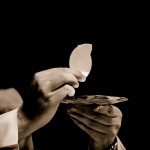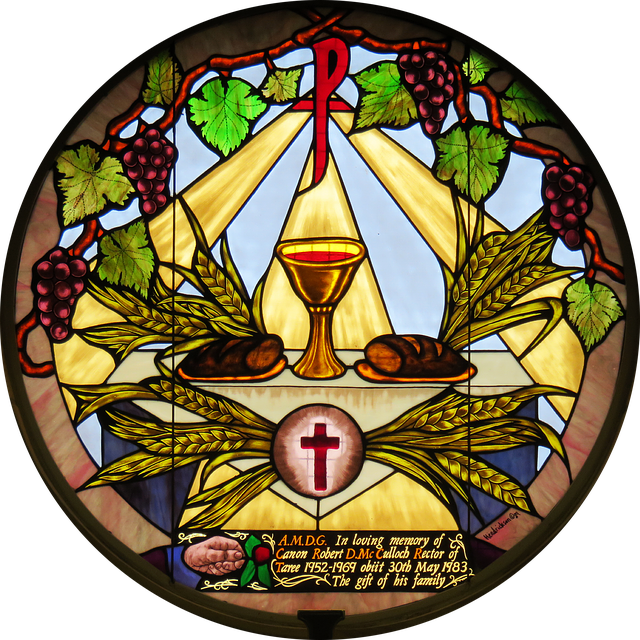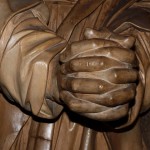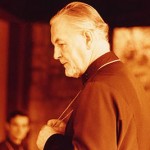Here is an article I wrote first for the Diocese of C4SO monthly newsletter. It was then picked up and published by Anglican Pastor.
My social media news feeds are a flutter with posts about the beginning of Lent: Shrove Tuesday meals, Ash Wednesday services, Lenten disciplines and strong opinions about the relevance of the season. It seems that there are differing views and/or misunderstandings about the nature of the Lenten season. People write about Lent being “Roman Catholic” or that there is no need for Lent because “Jesus already paid for my sins.” I think that we need to unmask Lent for those who are unsure about this penitential season. I think that we need to see Lent for what it is, and certainly for what it is not.
Lent is not a time to earn forgiveness for your sins. It is not a time to begrudgingly give something up temporarily only to greedily pick it back up after Easter. It is not a time for false humility or personal piety. Lent is not only a tradition for the liturgically minded.
I believe that Lent is for the priesthood of all believers.
I believe that Lent is full of hope.
I believe we must journey to the foot of the Cross before we stumble upon the Empty Tomb.
Lent is catholic
Lent is catholic, not Catholic. This is not meant with any insult toward our Roman Catholic brothers and sisters, far from it! It is for the one holy catholic and apostolic church.
In this Lenten Season we are athletes in intense training rather than sinners in the hands of an angry God. There are ancient disciplines and biblical practices that help locate and combat the spiritual flab on our souls. Much like a marathon runner needs to practice for weeks and months on end, stretching before each run, we are stretched through our continual workouts as we practice for the kingdom. N.T. Wright challenges us to begin practicing in the present for the full reality of Jesus’ kingdom in the future.
The call in Lent is the call to discipleship. That is, in this penitential season of self-reflection and intentional spiritual awareness we look down the slopes of the Mountain of Transfiguration straight to the cross on Golgotha and journey with Jesus, the disciples, and one another as we follow the One who has called us. Jesus’ 40-day temptation retreat in the wilderness provides the framework for our introspection and spiritual regimen. Why?
Because we know that we need the cross daily.
Because we know the areas of our hearts and lives that are not aligned with God.
Because we know that we are but ashes and dust; we are creature not Creator.
Our call is not to become spiritual superstars or to take on disciplines to the notice and laud of others. Our call, as Christ-followers and as the Church, is to sacrifice our entire person as our spiritual act of worship (Rom. 12); to be formed spiritually as “new creation” (2 Cor. 5); to “decrease” so that Christ might “increase” (John 3); and to grow in maturity in the faith together (Eph. 4). As you can see, this is the call for all believers. In fact, historically the local church took on disciplines throughout Lent—particularly prayer and fasting—while her newest converts went through the catechumenate to prepare for baptism during the Easter Vigil. Lent was a church-wide tradition. I think it still is Church-wide, or at least still can be.
Lent teaches us to live in the shadow of the cross and the radiant light of the empty tomb. We learn to die to self and rise in Christ. Taking on of spiritual disciplines, coupled with “giving things up”, helps form us more fully as members of God’s Story rather than our own. Our desperate need for grace and the radical reversal of our realities plant us firmly in the tradition of the one holy catholic and apostolic church which teaches us to rely on God absolutely.
Fridays are for Fasting
As stated previously, prayer and fasting are two of the oldest spiritual disciplines in Christian spirituality and Lenten preparation. The faihtful would fast alongside and on behalf of those new believers in Jesus who were readying for baptism. Fasting has become a regular fixture in my weekly schedule as I set Friday aside for the abstinence of food. Why? I am fasting because I want to draw closer to God through lack of food—I want to encounter him in my hunger—and I have found that prayer and meditation are actually much easier when I am not interrupted by the need to feed.
Recently the majority of the 32 postulants for ordination in this Diocese have agreed to spend Fridays in fasting and prayer for one another. Fasting has become a sort of spiritual solidarity that they can offer up in the midst of any circumstance or trial. We are not earning or winning anything through this spiritual practice, in fact I have personally found myself desperately hungry well before the time is up. If I can meet our Lord in the bread and wine of the Eucharist then why can I not meet him in the words that “flow from the mouth of God” because “man does not live by bread alone”?
In On Liturgical Asceticism, David Fagerberg relates a poignant story about fasting from the Desert Fathers, “No fast should be held inhospitably rigid that it cannot be broken.” He goes on to share a story in which a monk breaks his fast and his dining companion asks why. The monk replies, “Because I can always fast but I will not always be able to dine with you. We can eat not and I can resume my fast later.” The point is not to become self-righteous or Pharisaical but to approach the Father through our own oblations and sacrifices in the knowledge that he has already wooed us to himself and that he desires our praises, both verbal and physical.
Will you join us and set Fridays in Lent aside for fasting? This is not a “misery-loves-company” type invitation but rather an opportunity to train our bodies, hearts and minds in the contemplation and adoration of He Who is Greater than we can ever comprehend; it is a request for you to participate in the spiritual life of the Church in a meaningful way; it is a chance for you to remove every hindrance and encumbrance while we run the race set before us. The goal is not weight loss or personal holiness (per se): the goal is always God. It is the God whom we meet in the absence of a few meals and it is He whom we meet in the presence of physical hunger.
Perhaps our physical hunger can serve as a mirror or catalyst for spiritual hunger. What if I longed for God the way I longed for food after a 24-hour fast? What if I pursued God with zeal as I do the meal ravenously consumed once my fast has broken? What if? Perhaps this is an opportunity to the glory of God…will you join me?
Pass this along to friends and family as a challenge to live life in Lent together. Join with those who have gone before and set the example for those who will come after. Lent is a launching pad for the life of the disciple to be continued daily after Easter. May we journey together as one voice, one Body. May we all observe a holy Lent.












